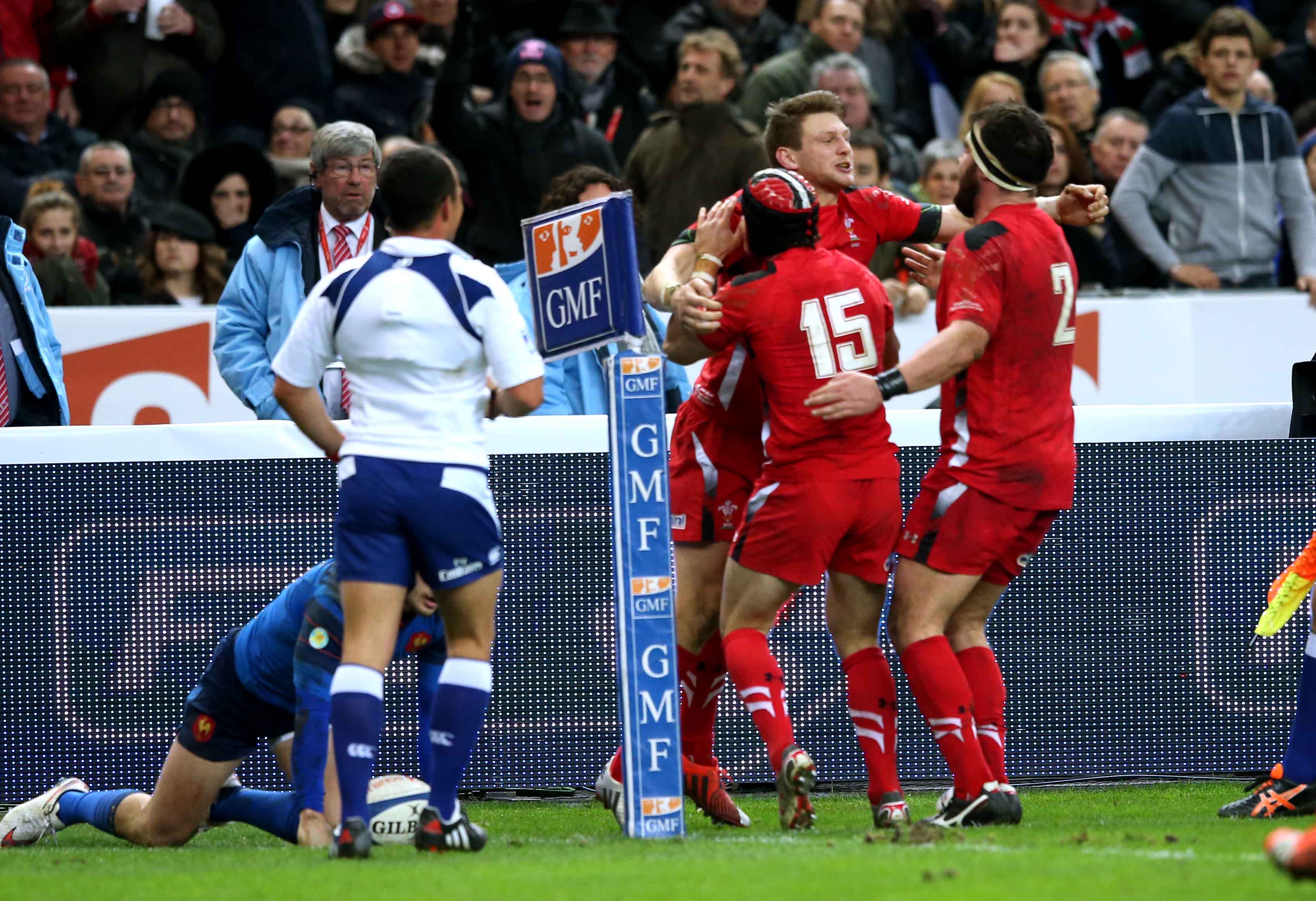Warren Gatland's team secured a narrow win at Murrayfield – and here's analysis of the key points to take from the match
Wales will be happy with their win in Edinburgh
The average life expectancy in Wales is 80.3 years. This will have lowered by a few decimal places on Sunday after Wales delivered a 26-23 win over Scotland. The win was secured in the dying seconds, after some calamitous timekeeping from the officials, and will be judged by many as a narrow escape. But it shouldn’t be.
Despite a vulnerable set-piece, particularly the scrum, Wales secured ample levels of possession and territory. Wales had 51% possession and 53% territory – those numbers were significantly higher in the opening 25 minutes. Parity of possession allowed Jamie Roberts to execute his sterling carrying and Wales’ accurate kicking game, led by the highly impressive Dan Biggar, allowed for large territorial gains. But by far the most important reason that this narrow win shouldn’t be frowned upon is the quality of the opposition.
This is a very different Scotland team. This is not the fragile Scottish team of the past decade with a brittle set-piece and little options in the central channels. Vern Cotter has stabilised their scrum, made huge improvements with their lineout and created a startling counter-attack game. It was like watching Wales of 2005 v Wales of 2015 where speed of thought and execution takes precedence over contact – the last time I saw so many quick taps in the 22 it was called the 25. It was positive to see Wales get the win and the squad deserved it. But it was equally pleasing to see Scotland playing rugby as we all wish it to be played.
Wales can’t drop Liam Williams. End of.
Liam Williams has become undroppable. This may seem incongruous in that to become undroppable a player needs to be picked regularly in the first place. But Wales simply can’t ignore a player who is delivering at a level far above many of his peers in the national team.
Williams was once again faultless and delivered an assured performance with and without the ball – he was joint top for defenders beaten and led clean breaks. His kicking was pinpoint, his aerial work brave, and his support play and offloading as good as anyone in the squad.
His detractors will point to his previously rash decision-making, but that, too, seems to have gone. His clarity of thought in making a spot tackle on Mark Bennett, as Scotland took a quick tap penalty near the Welsh line, was liquid nitrogen in its coolness. Dropping Liam Williams for the visit to France would be one of the harshest selections that Warren Gatland has had to make during his time with Wales.
A new side to Alun Wyn Jones
It’s great to see Alun Wyn Jones still evolving as a player. Even at 29 he is developing new facets to his game. A trait that separates the good from the best – just look at Brian O’Driscoll, whose game evolved until the day he retired. AWJ did just that against Scotland.
Yes, of course he delivered his standard array of armour-piercing clear-outs, athletic fringe tackling and his short but valuable carries – but he also executed a series of neat, accurate offloads that allowed Wales to continue their progress over the gain-line.
But by far the most impressive aspect of Jones’s games was the miss pass he threw to Liam Williams in the build-up to Rhys Webb’s try. This is the sort of pass we are used to seeing from southern hemisphere locks like Sam Whitelock and Brodie Retallick. Well played AWJ.
Wales dominated the air
All good Test teams rely on a solid and structured kicking game. As much as the rugby romantics would like it to be otherwise it is a huge part of elite rugby. And when Wales’ full-back, wing and outside-half dominate that contest, as they did against Scotland, it’s easy to see why Wales utilise it to the full. Wales dominated Scottish airspace to the extent that three red dots probably appeared on the monitors at Edinburgh Airport’s air traffic control.
Leigh Halfpenny, Liam Williams and Dan Biggar executed a tremendous aerial kick-and-chase that allowed Wales to dominate huge swathes of territory – particularly in the first half. Kicking high and deep, all three caused huge problems for Scotland’s kick defence, but whilst Halfpenny and Williams executed particularly well in this area, special praise must be reserved for Biggar, who effortlessly slid from outside-half to full-back and demonstrated an aerial ability that few Test 15s have – let alone tens.
Another massive clock-up
The ancient Egyptians mastered timekeeping over 4,000 years ago. Yet amazingly rugby still has problems with it in 2015. Scotland were denied the opportunity to win on Sunday by an unacceptable timekeeping error in the 79th minute.
Now let’s be clear, refereeing elite rugby is a thankless nightmare and presents a challenge that few other sports can. The number of possible infringements that can occur at any one time, particularly in the contact area, occur at such rapidity that even a speed camera would fail to capture all of the offences.
However, Sunday’s incident was different. It occurred in isolation and at a point in the game when all three officials had nothing else to do. The try had been scored, the conversion taken and the post-try scuffle had been quelled. Elite rugby needs elite officiating, but this was a horribly amateur incident.
The March 2015 issue of Rugby World is packed with Six Nations features. Find out how to download it here and for the latest subscription offers click here.








